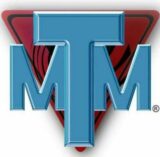
Hypercholesterolemia, characterized by high levels of cholesterol in the blood, is a significant risk factor for cardiovascular diseases. While statin medications have long been the go-to treatment for lowering cholesterol, some individuals may not tolerate or respond optimally to statins. In recent years, non-statin cholesterol medications have emerged as promising alternatives, providing healthcare professionals with additional tools to combat this widespread health concern. This article explores the different classes of non-statin cholesterol medications and their roles in managing hypercholesterolemia.
1. Bile Acid Sequestrants
Bile acid sequestrants are one of the oldest non-statin cholesterol medications. They work by binding to bile acids in the intestine, preventing their reabsorption and forcing the liver to use cholesterol to produce more bile acids. This ultimately reduces circulating cholesterol levels. Although not as potent as statins, bile acid sequestrants are often combined with statins to achieve better cholesterol control. Common side effects include constipation and bloating, which may limit their tolerability for some patients.
2. PCSK9 Inhibitors
Proprotein Convertase Subtilisin/Kexin Type 9 (PCSK9) inhibitors are a newer class of non-statin medications that have shown great promise in reducing LDL cholesterol levels. PCSK9 inhibitors work by blocking PCSK9, a protein that degrades LDL receptors. By inhibiting PCSK9, these medications enhance the liver’s ability to clear LDL cholesterol from the bloodstream. PCSK9 inhibitors are administered as injections and are generally well-tolerated, with most common side effects being mild injection site reactions.
3. Ezetimibe
Ezetimibe is a cholesterol absorption inhibitor that works in the small intestine to reduce the absorption of dietary cholesterol. It targets the Niemann-Pick C1-Like 1 (NPC1L1) protein, which plays a crucial role in cholesterol absorption. By inhibiting NPC1L1, ezetimibe lowers LDL cholesterol levels and, to a lesser extent, triglycerides. Often prescribed in combination with statins, ezetimibe can provide additional cholesterol-lowering benefits. It is available in oral tablet form and is generally well-tolerated, making it a valuable option for individuals who cannot tolerate statins.
4. Fibrates
Fibrates primarily target triglyceride levels and are often prescribed to individuals with high triglycerides and low HDL cholesterol levels. These medications activate peroxisome proliferator-activated receptors (PPARs), which play a key role in lipid metabolism. By stimulating PPARs, fibrates reduce triglyceride production and increase HDL cholesterol levels. However, fibrates may only have a modest effect on LDL cholesterol, which limits their use as standalone cholesterol-lowering agents. Common side effects include gastrointestinal disturbances and an increased risk of gallstones.
Hypercholesterolemia is a significant health concern, and managing cholesterol levels is crucial for preventing cardiovascular diseases. While statins have long been the gold standard for cholesterol management, non-statin cholesterol medications have emerged as valuable alternatives, providing additional options for patients who cannot tolerate or adequately respond to statins. Bile acid sequestrants, PCSK9 inhibitors, ezetimibe, and fibrates are some of the key non-statin medications available to healthcare professionals. As research and development in this field continue to progress, we can expect even more effective and better-tolerated non-statin cholesterol medications to improve patient outcomes and enhance cardiovascular health.
